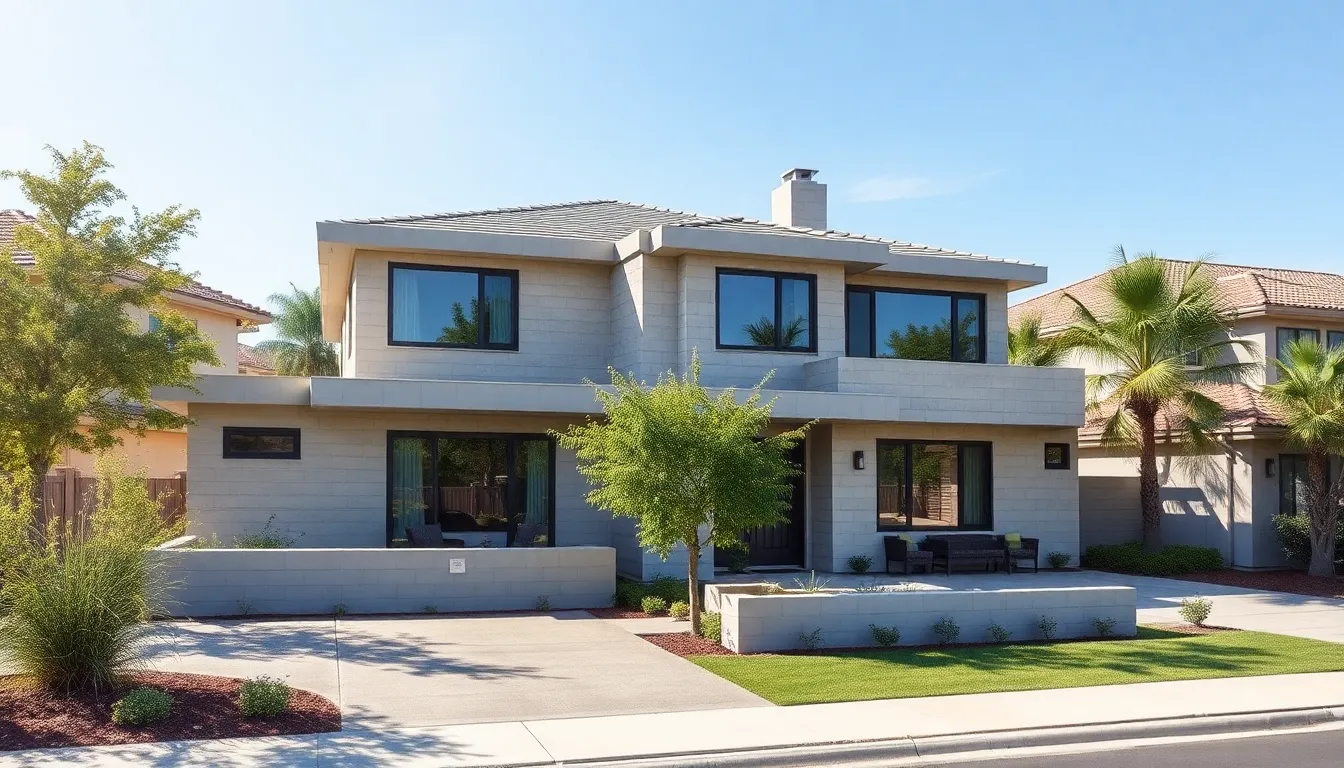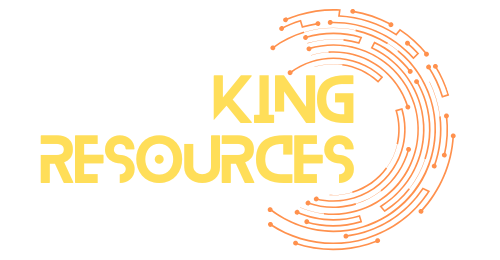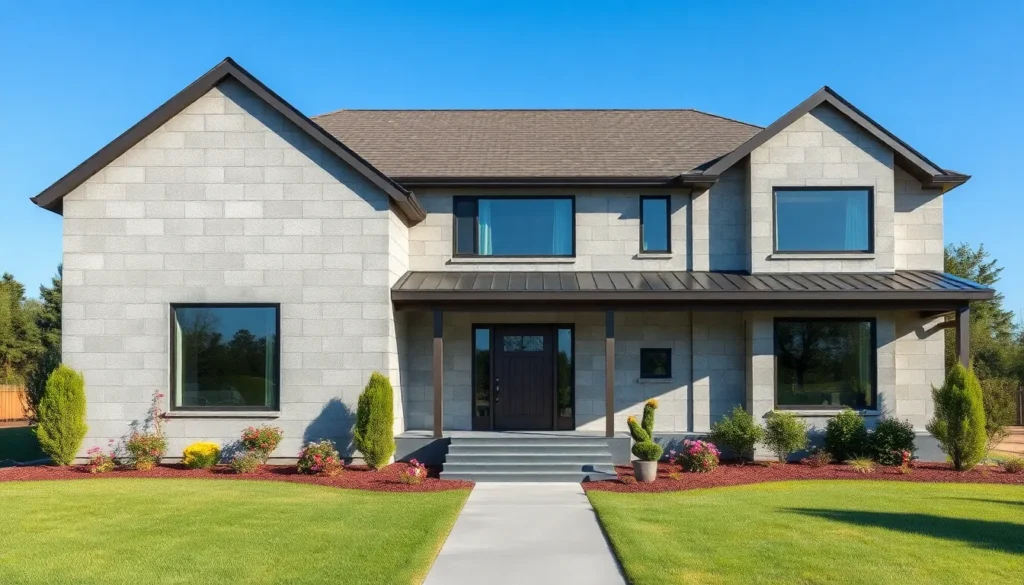When it comes to building a home, most people dream of cozy nooks and stylish décor. But what if the walls of that dream house could also help save the planet—and your wallet? Enter concrete block homes, the unsung heroes of energy efficiency. These sturdy structures not only stand strong against the elements but also boast impressive insulation properties that can keep your energy bills as low as your neighbor’s eyebrows when they see your energy savings.
Table of Contents
ToggleUnderstanding Concrete Block Homes
Concrete block homes consist of structures built using concrete masonry units. These homes offer strength and resilience, making them a popular choice for various climates.
What Are Concrete Block Homes?
Concrete block homes utilize large blocks made from cement, aggregates, and water. Builders stack these blocks to create walls, providing a sturdy framework. Standard dimensions for these blocks are typically 16 inches long, 8 inches high, and 8 inches wide. Variations exist to accommodate design preferences. Fire resistance and noise reduction further enhance their appeal.
Benefits of Concrete Block Construction
Concrete block construction presents multiple advantages in terms of energy efficiency. Excellent insulation properties significantly lower heating and cooling costs. Durability ensures minimal maintenance, leading to long-term savings for homeowners. Environmentally friendly materials contribute to sustainability efforts. Increased resistance to pests and extreme weather enhances safety and longevity.
Energy Efficiency in Housing

Energy efficiency significantly impacts both environmental sustainability and homeowner expenses. Concrete block homes exemplify how durable construction can lead to reduced energy consumption.
Importance of Energy Efficiency
Energy efficiency lowers utility bills and minimizes environmental impact. Homeowners benefit from reduced heating and cooling costs, leading to long-term savings. Efficient homes also contribute to decreased greenhouse gas emissions, promoting a healthier planet. Additionally, energy-efficient designs enhance occupancy comfort and well-being by maintaining stable indoor temperatures. Thus, investing in energy efficiency creates value for homeowners while supporting sustainability and energy conservation efforts.
Factors Affecting Energy Efficiency in Homes
Several factors influence energy efficiency in homes, including insulation quality and material selection. Concrete block construction provides superior thermal mass, which helps regulate indoor temperatures. Climate conditions can also play a role, as homes in extreme weather areas require enhanced insulation and design features. Architectural design affects energy flow; well-oriented windows and strategic shading improve natural lighting and ventilation. Finally, energy-efficient appliances contribute significantly to overall efficiency levels in a home. Evaluating these factors ensures a comprehensive approach to maximizing energy efficiency in residential construction.
Are Concrete Block Homes Energy Efficient?
Concrete block homes offer notable energy efficiency due to their construction materials and design. These homes provide significant benefits in terms of insulation and cost savings.
Thermal Mass and Insulation Properties
Thermal mass plays a crucial role in energy efficiency. Concrete blocks absorb and store heat, helping regulate indoor temperatures by reducing fluctuations. During the day, concrete blocks capture warmth and release it at night, contributing to a balanced climate within the home. Insulation properties enhance this effect, keeping heating and cooling costs lower compared to traditional wood-framed homes. The solid structure helps prevent air infiltration, further increasing energy savings. A study from the U.S. Department of Energy highlights that well-insulated concrete homes can save homeowners up to 30% on energy bills.
Cost-Effectiveness of Concrete Block Homes
Cost-effectiveness stems from durability and low maintenance needs. Concrete block homes resist weather-related damage, cutting long-term repair costs. Although initial construction costs may be slightly higher, energy savings quickly offset this expense. Homeowners benefit from lower utility bills, with some experiencing reductions of around 15-30% compared to less efficient homes. Additionally, concrete blocks offer fire resistance, prolonging the lifespan of the structure and providing financial peace of mind for homeowners. Long-term investment in a concrete block home leads to both immediate and future cost benefits.
Potential Drawbacks of Concrete Block Homes
Concrete block homes offer numerous benefits but come with potential drawbacks. These challenges can affect energy efficiency and overall performance.
Issues with Insulation
Insulation effectiveness can vary in concrete block homes. While concrete provides good thermal mass, its insulating properties may not match those of advanced insulation materials. Homeowners might find that without additional insulating layers, walls can absorb heat in summer and lose heat in winter. Some experts recommend incorporating insulation boards or foam to enhance energy efficiency. Those seeking maximum energy savings should evaluate insulation options when planning construction.
Moisture Management Concerns
Moisture management is crucial in concrete block construction. While concrete is durable, it can retain moisture, leading to potential issues like mold and mildew. Proper waterproofing measures, such as drainage systems or sealants, are essential to protect against water infiltration. Neglecting these precautions can result in long-term damage and decreased indoor air quality. Effective vapor barriers and ventilation systems can further mitigate moisture-related problems, ensuring a healthier living environment. Homeowners must prioritize moisture management strategies during the planning phase.
Concrete block homes represent a compelling choice for energy-conscious homeowners. Their inherent durability and insulation properties not only contribute to a comfortable living space but also promote significant energy savings. By leveraging the thermal mass of concrete, these homes help regulate indoor temperatures effectively.
While there are considerations regarding insulation and moisture management, the long-term benefits often outweigh the initial challenges. Homeowners can enjoy reduced utility bills and minimal maintenance needs, making concrete block construction a financially sound investment. Embracing this building method aligns with sustainable practices and supports a greener future.









